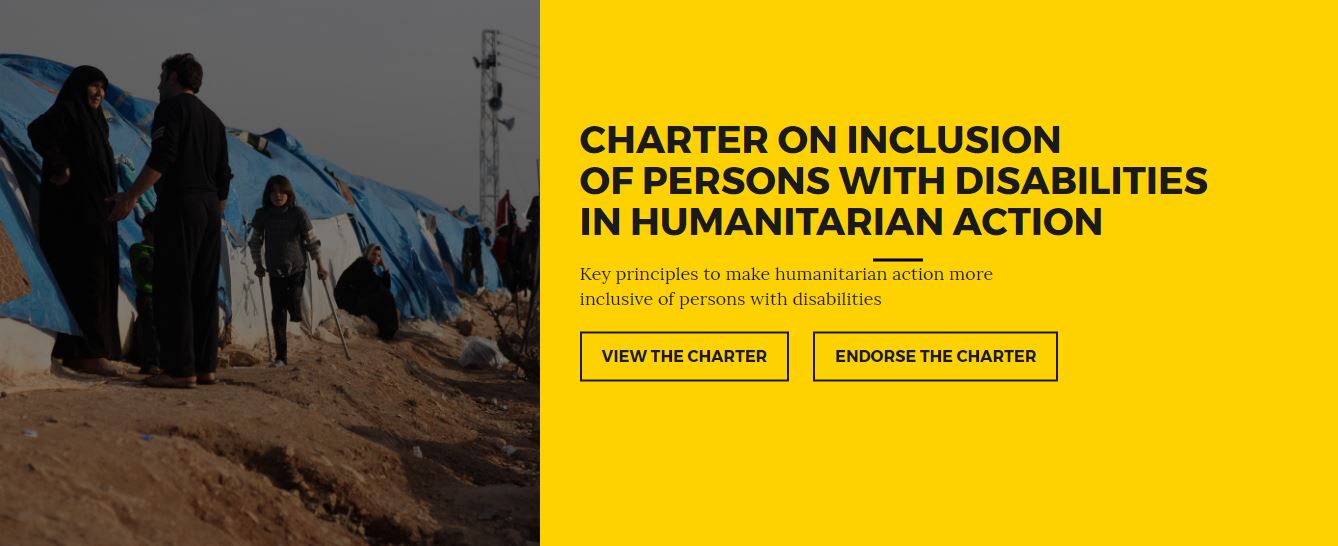Start Network has endorsed the Charter on Inclusion of People with Disabilities in Humanitarian Action at a first anniversary event hosted by Handicap International UK and CBM UK in partnership with the UK Department for International Development.
The event, held at Westminster University in London, aimed to increase UK mainstream NGO support for the Charter, which was launched in May 2016, at the World Humanitarian Summit. Ban Ki-moon, then the United Nations’ Secretary-General,described it as “a ground-breaking Charter that places people with disabilities at the heart of humanitarian decision-making”.
It acknowledges the fact that people with disabilities are often excluded from humanitarian action. The Charter also sets out the key changes to ensure non-discrimination in humanitarian responses with better coordination and implementation of humanitarian activities as well as greater participation of people with disabilities in decisions that affect them.
Shveta Shah, who heads Start Engage and its DEPP portfolio, who represented Start Network at the event, said:
“As a network of national and international civil society organisations, we are delighted to endorse the Charter. Its principles enhance our determination to deliver collective humanitarian action in the spirit of our World Humanitarian Summit commitments.”
Start Network was among five organisations - the others being Save the Children, Leonard Cheshire, the Start Network, HelpAge International and World Jewish Relief - that endorsed the Charter during the event. Two more UK based actors announced that they would also endorse the Charter very soon.
The Director of DFID’s Conflict, Humanitarian and Security Department (CHASE), Beverley Warmington, chaired the event and was supported by speakers from the European Disability Forum, Yannis Yallouros and Kirstin Lange, Senior Disability Advisor at the UNHCR.
Beverley Warmington reiterated the UK Government’s commitment to push the rights of disabled people and make sure no one is left behind in areas of armed conflict or disasters. She urged more UK organisations to endorse the Charter and deliver real change for disabled people caught in conflict and disaster situations.
Aleema Shivji, Executive Director of Handicap International UK., said:
“1 in 7 people affected by a crisis are disabled. Sadly we know from experience that, even if they represent a large number of vulnerable people, people with disabilities and injuries struggle to access thesupport they need and can easily find themselves excluded and forgotten in a crisis. The Charter brings an end to a great injustice; the next step is to ensure the commitments made are turned into concrete action. Handicap International will continue to work tirelessly to ensure this Charter is put into practice and that no one is left behind in humanitarian crises.”

